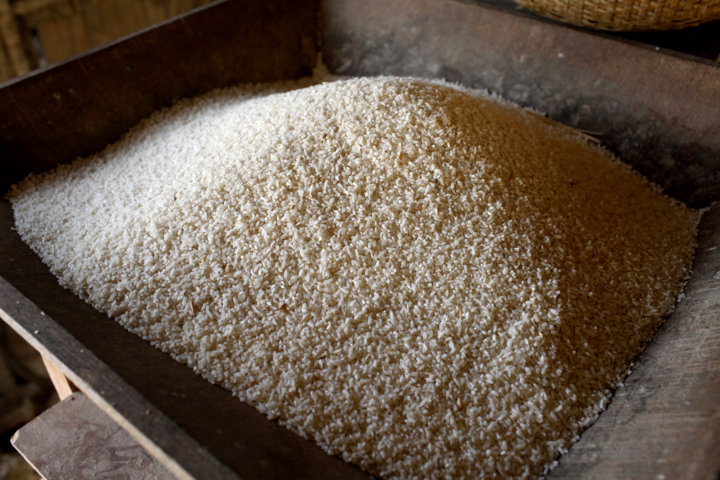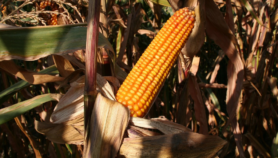Send to a friend
The details you provide on this page will not be used to send unsolicited email, and will not be sold to a 3rd party. See privacy policy.
[COTONOU] Investing in rice marketing could increase the production of the crop in African countries, according to rice experts who attended an international conference in Benin.
The 2015 AfricaRice Science Week, which was held last month (9-13 February), recognised that although new technologies and innovation have contributed to increased rice production in Africa, the effect could be greater if marketing problems are addressed.
The conference was organised by AfricaRice, a member of CGIAR Consortium, to identify the challenges that African countries need to address to aid self-sufficiency in rice production and stop rice imports, which result in loss of revenue on the continent
“If we get support, we will be motivated to produce rice in quantities to meet market demand and increase our incomes.”
Salomon Dossou, Rice Producers Association in Glazoué, Benin
It was attended by 200 experts from 28 African countries, including Cote d'Ivoire, Senegal and Madagascar. The conference also served as the Africa-Forum of the Global Rice Science Partnership, a CGIAR Research Program on rice, also discussed rice research for development activities and how to disseminate scalable technologies in rice production, says AfricaRice.
Amadou Moustapha Beye, a researcher at AfricaRice in Côte d’Ivoire, declared that marketing local rice production can help boost production, adding that some efforts have been made in some African countries such as Côte d’Ivoire and Senegal to encourage people to buy local rice.
“There was a net increase in [rice] production, especially in Côte d’Ivoire during the past two years,” Beye said, citing a 30 per cent increase in production and a 20-30 per cent reduction in rice imports in Côte d’Ivoire.This may be attributed to policies adopted by some African countries, including Senegal, Beye said.
“In Senegal, the president is committed to promoting local consumption and encourage each importer to buy local rice,” Beye said. Experts believe that action must be taken as in Senegal to encourage consumption of local rice.
Moussa Sié, a senior breeder at AfricaRice in Madagascar, said rice production thrives when farmers can sell their produce. “If you produce and you are not able to sell, you will abandon the production,” Sié said.
According to Sié, getting access to quality seeds account for 40 per cent increase in rice production.
“If we can create new varieties, it is necessary that these varieties are made available to farmers,” Sié explained.
Beye said platforms such as Android app and a website for marketing food products including rice has been developed in Senegal to help farmers and agricultural enterprises to exhibit and sell their products.
Salomon Dossou, president of Rice Producers Association in Glazoué, a rice development hub in Benin, tells SciDev.Net: “Our greatest wish is to sell our produce and its consumption by the population. If we get support, we will be motivated to produce rice in quantities to meet market demand and increase our incomes.
“Unfortunately, we do not sell as we wish because people prefer imported rice. Local consumers need to buy our produce. We face the problem of commercialisation despite the availability of good varieties that can help us get high yields to meet market demand.”
This article has been produced by SciDev.Net's Sub-Saharan Africa desk.














